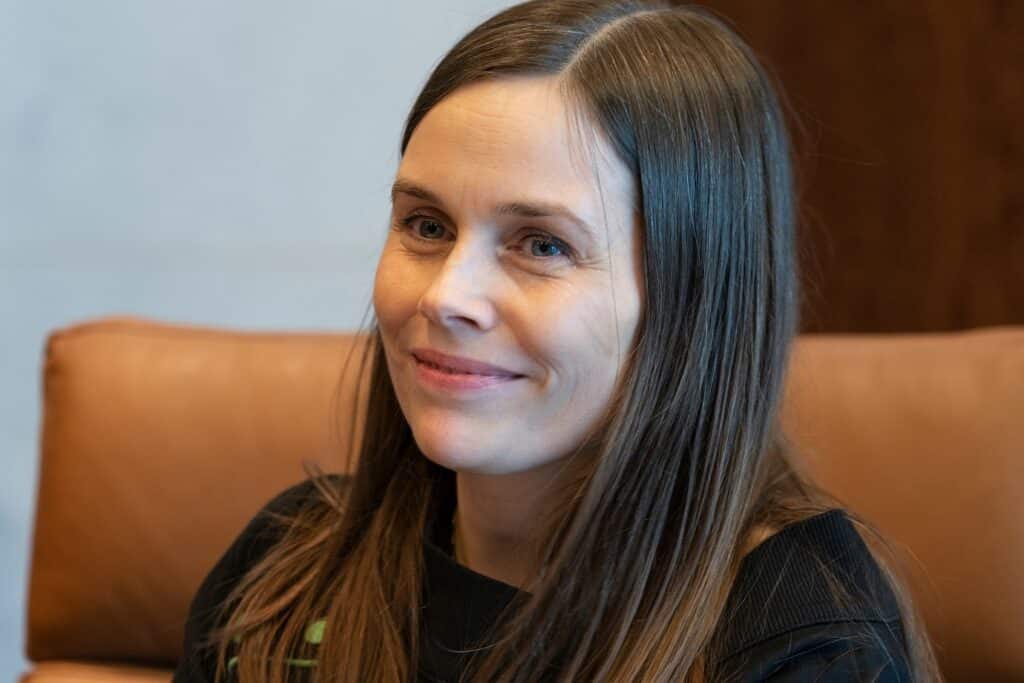As global leaders continue to discuss the highest-level issues in the final days of the UN General Assembly, one of the few female leaders in the mix has brought up concern for the declining number of women heading governments around the world.
Iceland’s prime minister, Katrin Jakobsdottir, says that being a female leader is increasingly isolating, The Times reports.
“Numbers have gone down rather than up so it’s a lonely place,” said Jakobsdottir. “It’s a worrying trend and shows there’s nothing given about gender equality.”
There’s currently 13 UN countries with female leaders worldwide, according to data from the Council on Foreign Relations. Out of the 193 UN countries that exist, this leaves the percentage of UN nations led by women to be less than 10 per cent.
Tsai Ing Wen and Vjosa Osmani, who serve as presidents of Taiwan and Kosovo (not UN member states), respectively, tip the already small number up to 15 total countries worldwide that are led by women.
Countries like Peru, Italy and Bosnia all saw their first female leaders take office this year, however there’s also been some big-headline resignations– New Zealand’s Jacinda Ardern in January, Moldova’s Natalia Gavrilita in February and Finland’s Sanna Marin was voted out in June. Gabon’s first female prime minister was removed in a coup last month as well.
Despite the lack of female representation, countries led by women tend to be healthier and happier than those led by men. The latest World Happiness report shows 5 out of the top 20 happiest countries were led by women– a ratio that far exceeds the number of women taking on such roles.
“I think if we had more women at the table making decisions we would have less conflict and more focus on the well-being of the population,” said Jakobsdottir, who has made a point to centre gender equality in her speeches throughout her time in Iceland’s top office.
“The sad fact is gender equality is not high on the agenda for many men,” she said. “Of course there are good exceptions but very seldom. And when there are so few of us women in leadership positions I think it’s our responsibility to wave that flag wherever we go.”
Last month, Iceland was declared the global leader in gender equality for the 14th consecutive year.
In a 2019 opinion piece for CNN, Jakobsdottir wrote that she was determined to ensure her government plays its part in achieving gender equality.
“We have reviewed laws and processes, sped up our prevention work against sexual and gender-based violence and abuse, and undertaken a thorough review of the government’s role as an employer. Yet, we need to do more,” she wrote.
Four years later Jakobsdottir is still hard at work in progressing gender equality, noting that even though her progressive country is world leader, they still have a gender pay gap, gender-based violence and a business sector where women are lagging behind.
“So us being world leader tells a story that we have been quite progressive but also that the world isn’t doing very well when it comes to gender equality,” she said.
Her nearly six years in power makes her the world’s second longest female incumbent, and during the pandemic, Jakobsdottir’s leadership saw the country have one of the world’s lowest death tolls.
“There was a real pushback on women’s rights during Covid and it’s hard to get back,” said Jakobsdottir, pointing out that this regression is also apparent when looking at how backwards things have gone with abortion rights in the US and in some European countries.


